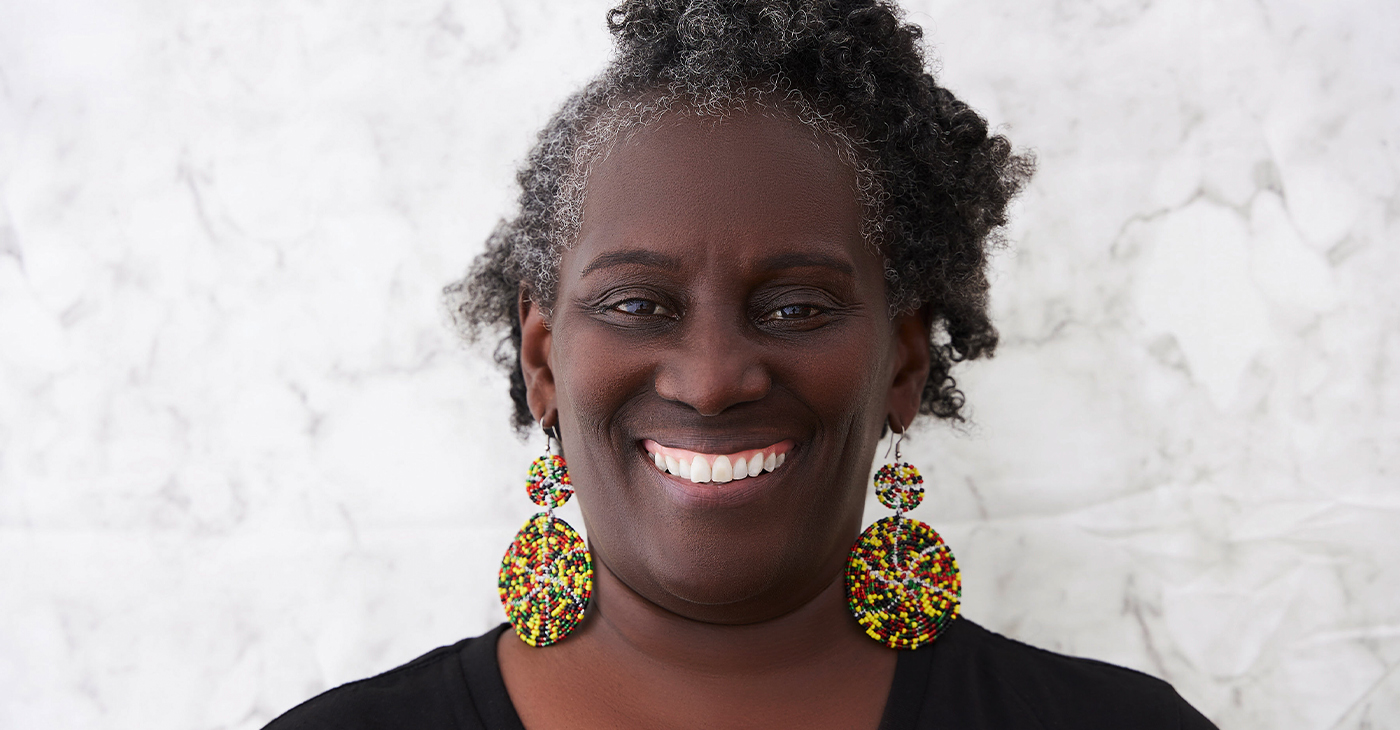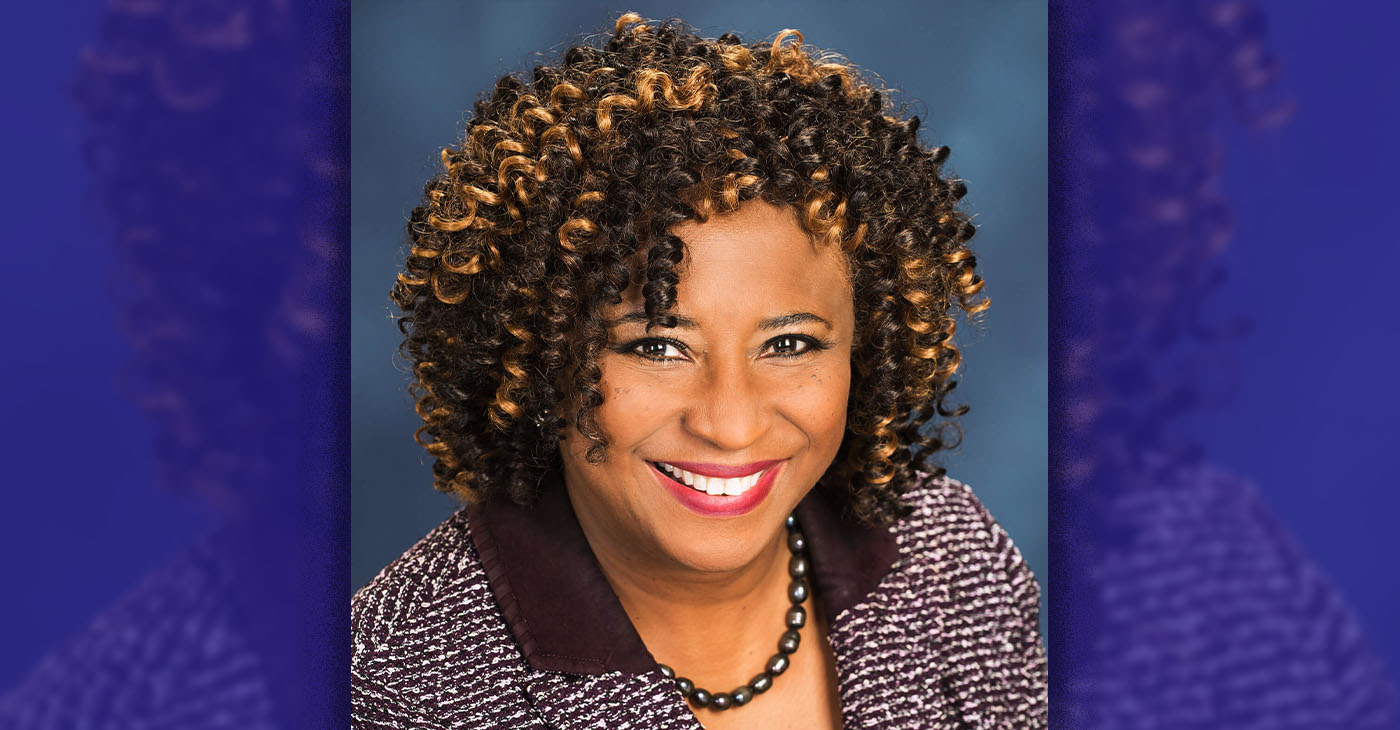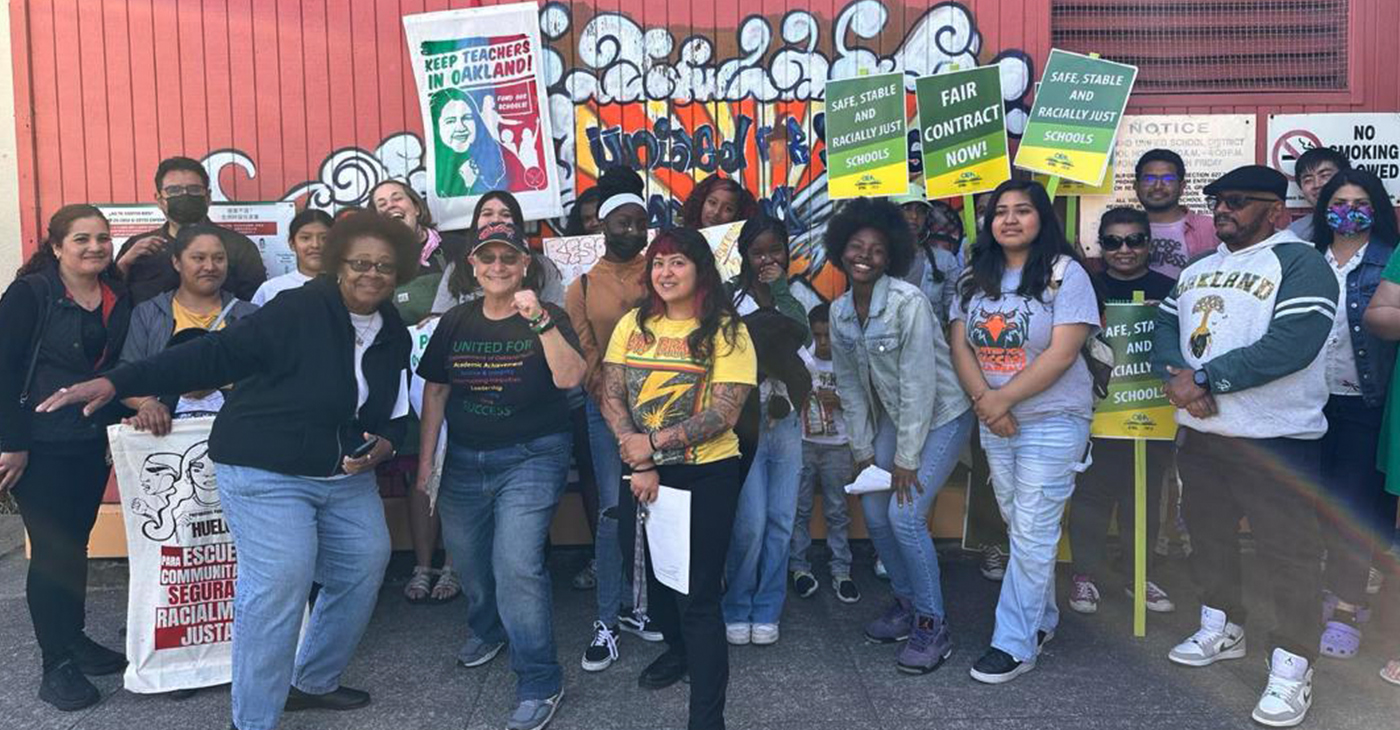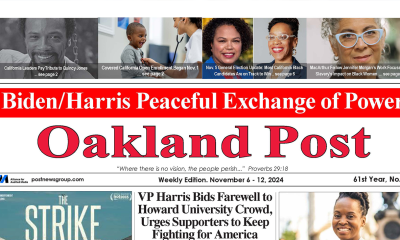Uncategorized
Op-Ed: Stand with Apple, Stand Up for Civil Rights
The Apple case is a matter of deep personal concern to me—given the surveillance of civil rights organizations.
The terrorists win when we allow fear to chip away at the U.S. Constitution, our national soul, our freedom, our way of life.
<p><p>
That is why the government, courts, private companies and individual citizens must defend and uphold—however unpopular—our First Amendment rights, our right to privacy and basic freedoms. That is why I stand with Apple in its encryption battle with the FBI.
I mourn the loss of 14 lives snatched away by terrorists in San Bernardino last December. Like every American, I am steadfast in supporting legitimate law enforcement measures to root out terrorism and protect our national security.
But if the government prevails against Apple, it is my belief that it will accelerate—and make easier—government efforts to “hack” into the legitimate activities of human rights organizations and activists, as happened time and time again during the Civil Rights Movement of the 1950s and 1960s.
The recent revelation of the government’s use of drones to conduct domestic spying shows how vulnerable everyday Americans are to invasive surveillance.
That is why the Rainbow PUSH Coalition opposes the FBI’s demand that Apple create new software to enable the government to access information from its iPhones.
It represents an unprecedented government overreach that threatens the civil liberties and privacy rights of all Americans. Although the government argues that its demand of Apple is for one time only, one device only, it has been reported that the authorities have already requested that Apple unlock its iPhones in nine other cases.
At great risk, CEO Tim Cook and Apple are standing up not just for their company, but for everyday civilians who cringe at the thought of the government compromising their privacy rights.
Rainbow PUSH supports the formation of a digital security commission. Hopefully, such a commission will create policy that protects personal freedoms and privacy, and respects both civil liberties and the needs of law enforcement and national security.
The Apple case is a matter of deep personal concern to me—given the past and present illegal and unwarranted spying and surveillance of civil rights organizations, much conducted under the guise of national security. The FBI infiltrated the Southern Christian Leadership conference and used wire-tapping and personal threats against Dr. Martin Luther King—with the support of other US government agencies—to discredit him and the civil rights movement.
The FBI’s COINTELPRO campaign spied on, infiltrated and disrupted domestic civil rights and political groups. Rainbow PUSH Coalition and I, personally, have been subject to spying and surveillance, and more recently, there have been accounts of surveillance of the Black Lives Matter movement and activists.
What is also fresh in many people’s minds is how major tech and telecom companies—as disclosed by Edward Snowden—collaborated with the National Security Agency in a global surveillance operation to obtain private information from millions of American people about their phone calls and Internet activity.
There is a toxic wind blowing across the country. Fear and fistfights erupt at political rallies. Children in Flint, Mich., drink poisoned water. Poverty and joblessness threaten to turn our inner cities into wastelands. Violent acts of terrorism, both domestic and global, are on the rise—from racist extremists in the Midwest to suicide bombers in the Middle East.
More than ever we need to have faith and trust in the government to serve and protect our rights and freedoms. But if the government fails to do so, we must.
As Dr. King often said, before he was gunned down in an act of domestic terrorism right before my eyes, “Where we stand in times of controversy is a measure of our character. Some leaders only follow opinion polls.
Others stand up for their principles, refuse to compromise and mold opinion.”
On this issue, I stand with Apple, and stand up for civil rights.
Arts and Culture
Rise East Project: Part 3
Between 1990 and 2020, Oakland lost nearly half of its Black population due to economic and social forces. East Oakland, once a middle-class community, is now home to mostly Black families living in poverty.

The Black Cultural Zone’s Pivotal Role in Rebuilding Oakland’s Black Community
By Tanya Dennis
Between 1990 and 2020, Oakland lost nearly half of its Black population due to economic and social forces. East Oakland, once a middle-class community, is now home to mostly Black families living in poverty.
In 2021, 314 Oakland residents died from COVID-19. More than 100 of them, or about 33.8%, were Black, a high rate of death as Blacks constitute only 22.8% of Oakland’s population.
This troubling fact did not go unnoticed by City and County agencies, and the public-at-large, ultimately leading to the development of several community organizations determined to combat what many deemed an existential threat to Oakland’s African American residents.
Eastside Arts Alliance had already proposed that a Black Cultural Zone be established in Deep East Oakland in 2010, but 2020’s COVID-19 pandemic galvanized the community.
Demanding Black legacy preservation, the Black Cultural Zone (BCZ) called for East Oakland to be made an “unapologetically Black” business, commercial, economic development community.
Established initially as a welcoming space for Black art and culture, BCZ emerged into a a community development collective, and acquired the Eastmont police substation in Eastmont Town Center from the City of Oakland in 2020.
Once there, BCZ immediately began combating the COVID-19 pandemic with drive-thru PPE distribution and food giveaways. BCZ’s Akoma Market program allowed businesses to sell their products and wares safely in a COVID-compliant space during the COVID-19 shutdown.
Currently, Akoma Market is operated twice a month at 73rd and Foothill Boulevard and Akoma vendors ‘pop up’ throughout the state at festivals and community-centered events like health fairs.
“Before BCZ existed, East Oakland was a very depressing place to live,” said Ari Curry, BCZ’s chief experience officer and a resident of East Oakland. “There was a sense of hopelessness and not being seen. BCZ allows us to be seen by bringing in the best of our culture and positive change into some of our most depressed areas.”
The culture zone innovates, incubates, informs, and elevates the Black community and centers it in arts and culture, Curry went on.
“With the mission to center ourselves unapologetically in arts, culture, and economics, BCZ allows us to design, resource, and build on collective power within our community for transformation,” Curry concluded.
As a part of Oakland Thrives, another community collective, BCZ began working to secure $100 million to develop a ‘40 by 40’ block area that runs from Seminary Avenue to the Oakland-San Leandro border and from MacArthur Boulevard to the Bay.
The project would come to be known as Rise East.
Carolyn Johnson, CEO of BCZ says, “Our mission is to build a vibrant legacy where we thrive economically, anchored in Black art and commerce. The power to do this is being realized with the Rise East Project.
“With collective power, we are pushing for good health and self-determination, which is true freedom,” Johnson says. “BCZ’s purpose is to innovate, to change something already established; to incubate, optimizing growth and development, and boost businesses’ economic growth with our programs; we inform as we serve as a trusted source of information for resources to help people; and most important, we elevate, promoting and boosting Black folks up higher with the services we deliver with excellence.
“Rise East powers our work in economics, Black health, education, and power building. Rise East is the way to get people to focus on what BCZ has been doing. The funding for the 40 by 40 Rise East project is funding the Black Culture Zone,” Johnson said.
Alameda County
Help Protect D.A. Pamela Price’s Victory
Alameda County District Attorney Pamela Price is asking supporters of the justice reform agenda that led her to victory last November to come to a Town Hall on public safety at Montclair Presbyterian Church on July 27.

By Post Staff
Alameda County District Attorney Pamela Price is asking supporters of the justice reform agenda that led her to victory last November to come to a Town Hall on public safety at Montclair Presbyterian Church on July 27.
Price is facing a possible recall election just six months into her term by civic and business interests, some of whom will be at the in-person meeting from 6:00-9:00 p.m. at 5701 Thornhill Dr. in Oakland.
“We know that opponents of criminal justice reform plan to attend this meeting and use it as a forum against the policies that Alameda County voters mandated DA Price to deliver. We cannot let them succeed,” her campaign team’s email appeal said.
“That’s why I’m asking you to join us at the town hall,” the email continued. “We need to show up in force and make sure that our voices are heard.”
Price’s campaign is also seeking donations to fight the effort to have her recalled.
Her history-making election as the first African American woman to hold the office had been a surprise to insiders who had expected that Terry Wiley, who served as assistant district attorney under outgoing D.A. Nancy O’Malley, would win.
Price campaigned as a progressive, making it clear to voters that she wanted to curb both pretrial detention and life-without-parole sentences among other things. She won, taking 53% of the vote.
Almost immediately, Price was challenged by some media outlets as well as business and civic groups who alleged, as she began to fulfill those campaign promises, that she was soft on crime.
On July 11, the recall committee called Save Alameda for Everyone (S.A.F.E.) filed paperwork with the county elections office to begin raising money for the next step toward Price’s ouster: gathering signatures of at least 10% of the electorate.
S.A.F.E. has its work cut out for them, but Price needs to be prepared to fight them to keep her office.
In a separate sponsored letter to voters, Price supporters wrote:
“We know that you supported DA Price because you believe in her vision for a more just and equitable Alameda County. We hope you share our belief that our criminal justice system has to be fair to everyone, regardless of their race, gender, ethnicity, religion, or socioeconomic status.
“The Republican-endorsed effort is a blatant attempt to overturn the will of the voters and a waste of time and money. It is an attempt to silence the voices of those who want real justice. We cannot let these election deniers succeed.
“Will you make a donation today to help us protect the win?
“Please watch this video and share it with your friends and family. We need to stand up to the sore losers and protect the win. Together, we can continue to make Alameda County a more just, safe and equitable place for everyone.”
For more information, go to the website: pamelaprice4da.com
or send an e-mail to info@pamelaprice4da.com
Bay Area
Oakland Teachers Walk Out
After negotiating late into the night and months of fruitless bargaining with the Oakland Unified School District, Oakland teachers went out on strike Thursday morning. “Our (50-member) bargaining team has been working for seven months working, making meaningful proposals that will strengthen our schools for our students,” said Oakland Education Association (OEA) Interim President Ismael “Ish” Armendariz, speaking at press conference Monday afternoon.

OEA calls unfair labor practices strike after 7 months of negotiations.
By Ken Epstein
After negotiating late into the night and months of fruitless bargaining with the Oakland Unified School District, Oakland teachers went out on strike Thursday morning.
“Our (50-member) bargaining team has been working for seven months working, making meaningful proposals that will strengthen our schools for our students,” said Oakland Education Association (OEA) Interim President Ismael “Ish” Armendariz, speaking at press conference Monday afternoon.
“OUSD has repeatedly canceled bargaining sessions, has failed to offer meaningful proposals or counterproposals at a majority of the bargaining sessions and has repeatedly failed to discuss certain items,” Armendariz said.
“The days (of bargaining) have been long, and after hours of waiting, the superintendent finally showed up on Sunday night at 11:00 p.m.to meet with our team (for the first time),” he said. “(But) the district continues to come to the table unprepared, and this is unacceptable.”
“This is illegal, and OEA has filed an Unfair Labor Practice charge with the state Public Employment Relations Board (PERB). Under California law, OEA has a right to strike over unfair labor practices,” he said.
OEA represents 3,000 teachers, counselors, psychologists, speech pathologists, early childhood educators, nurses, adult education instructors and substitute teachers, serving 35,000 Oakland public school students. Other labor groups representing school employees include SEIU 1021 and construction unions.
In a press statement released on Tuesday, OUSD said it has been trying to avert a strike.
“The district will remain ready to meet with the teachers’ union at any time and looks forward to continuing our efforts to reach an agreement with OEA … We will continue to do everything possible to avoid a work stoppage.”
“Our children’s education does not need to be interrupted by negotiations with our union, especially given the major offer the District made on Monday,” other district press statements said. “We are committed to continuing to work with our labor leaders to discuss their salaries and support services for our students without the need for a strike.”
OUSD’s latest salary proposal, released this week, includes a 10% raise retroactive to Nov. 1, 2022, and a $5,000, one-time payment to all members.
OEA’s recent salary proposal asked for a 10% retroactive raise to all members, a one-time $10,000 payment to members who return for the 2023-2024 school year, and increases from $7,500 to $10,000 to salaries, based on years of experience.
In addition to pay demands, OEA is making “common good” proposals that serve families and the community, including protecting and enhancing special education programs, putting the brakes on closing schools in flatland neighborhoods, shared school leadership, safety, and support for students.
-

 Activism3 weeks ago
Activism3 weeks agoLIVE! — TOWN HALL ON RACISM AND ITS IMPACT — THURS. 11.14.24 5PM PST
-

 Activism4 weeks ago
Activism4 weeks agoOakland Post: Week of November 6 – 12, 2024
-

 #NNPA BlackPress4 weeks ago
#NNPA BlackPress4 weeks agoOP-ED: The Illusion of Allyship. White Women, Your Yard Signs Mean Nothing to Me
-

 Activism2 weeks ago
Activism2 weeks agoAn Inside Look into How San Francisco Analyzes Homeless Encampments
-

 #NNPA BlackPress2 weeks ago
#NNPA BlackPress2 weeks agoPRESS ROOM: Clyburn, Pressley, Scanlon, Colleagues Urge Biden to Use Clemency Power to Address Mass Incarceration Before Leaving Office
-

 #NNPA BlackPress2 weeks ago
#NNPA BlackPress2 weeks agoFive HBCUs Leading the Charge in Creating Black Excellence
-

 Activism3 weeks ago
Activism3 weeks agoOakland Post: Week of November 13 – 19, 2024
-

 Activism2 weeks ago
Activism2 weeks agoOakland Post: Week of November 20 – 26, 2024



















































